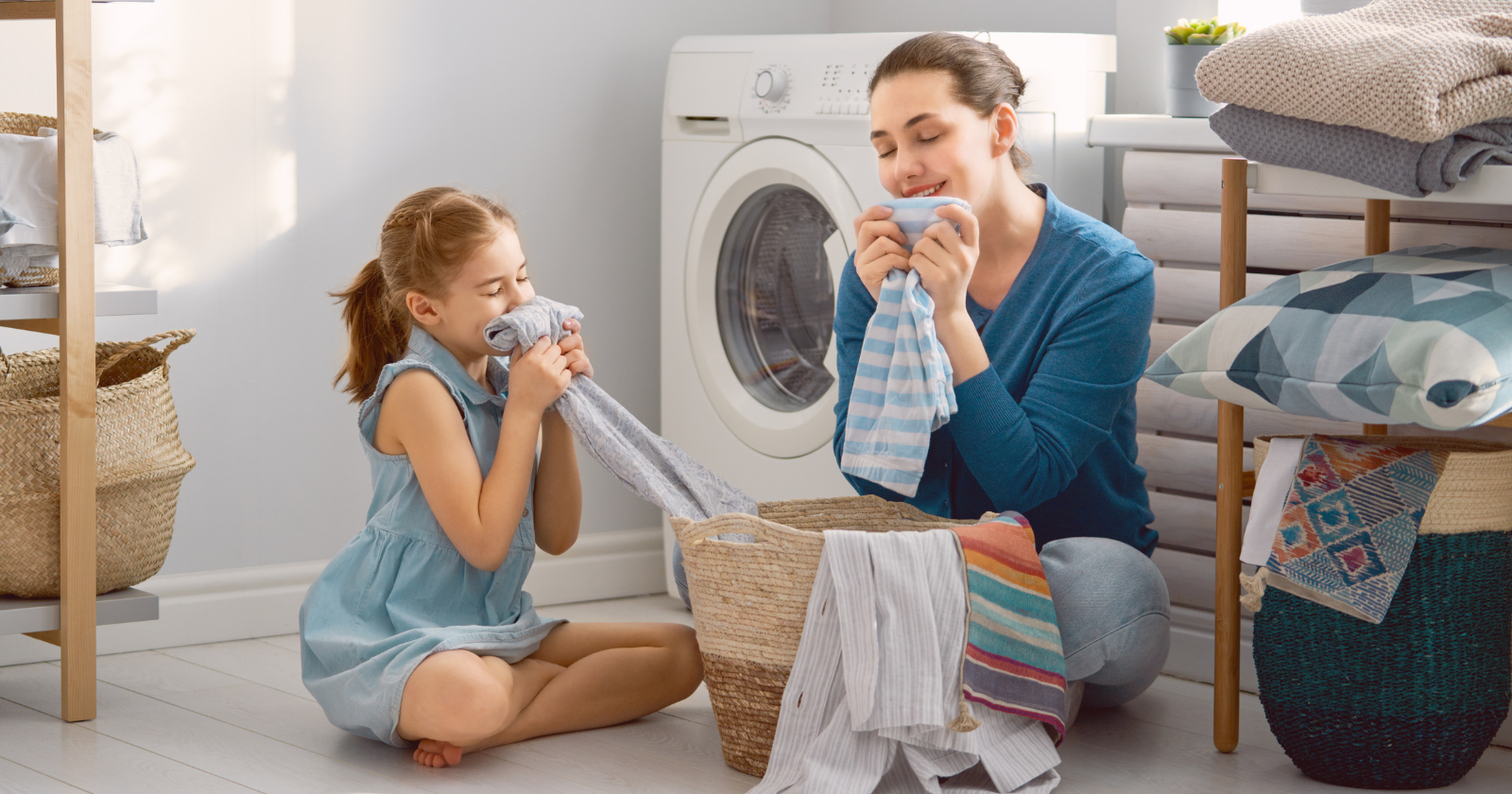Let’s be honest—some nights I crawl into bed wondering if I got anything right that day.
Did I yell too much? Was I patient enough? Should I have played one more round of “tea party–meets–dinosaur rescue” before folding the laundry?
If you ever feel that way too, take a deep breath. The fact that you even ask those questions is one of the clearest signs you’re doing better than you think.
Parenting isn’t about perfection—it’s about connection, curiosity, and showing up (messy hair and all).
Here are ten quiet signs you’re doing a much better job as a parent than you give yourself credit for.
1) Your kids feel safe coming to you—even when they’ve messed up
When Ellie knocked over a full jar of homemade elderberry syrup last winter, she looked at me with those wide, watery eyes that said, I’m so scared Mom’s going to lose it.
Instead, I sighed, grabbed a rag, and said, “Hey, it happens. Let’s clean it up together.”
That small moment built trust. When our kids know they can tell us the truth—without fear of explosion or shame—we’re teaching them that home is their safe harbor.
When kids feel seen and soothed, they develop the resilience to make better choices next time.
If your child comes to you crying, confessing, or even defiant, and your instinct is to breathe first before reacting—you’re doing beautifully.
2) You apologize and repair when things go sideways
None of us keep it together 100 percent of the time. I’ve snapped over spilled smoothie bowls, too.
Related Stories from The Artful Parent
- 7 things people discover about themselves after their children are grown and their career is over that they wish someone had warned them about at 40
- There comes a day when your child stops telling you things — not because something went wrong but because they found someone else to tell — and that’s the version of letting go that no one prepares a parent for
- A child will grow up and forget almost everything about their childhood except how the house felt when they walked in the door — and that feeling was never about the house
But if afterward you go back, kneel down, and say, “I’m sorry I yelled. That wasn’t fair to you,” you’re modeling one of life’s most powerful skills: humility.
Our kids don’t need perfect parents—they need real ones who know how to own their mistakes and make amends.
Each repair teaches them it’s safe to be imperfect and that relationships can be mended with honesty and care.
Every “I’m sorry” plants a seed of trust.
3) You focus on progress, not perfection
Did bedtime run late but everyone still brushed their teeth and read half a story? Win.
Did you manage one veggie at dinner instead of three? Another win.
- Psychology says the people who seem impossible to manipulate all share one trait. They learned early that love shouldn’t require you to abandon your own perception of reality. - Global English Editing
- Quote of the day by James Baldwin: “Not everything that is faced can be changed, but nothing can be changed until it is faced” - Global English Editing
- The career advice I ignored at 25 cost me three years and a failed startup — here’s what I’d tell anyone stuck in their thirties right now - Global English Editing
Parenting isn’t a checklist; it’s a rhythm. Some days flow, some derail—but noticing progress (no matter how small) keeps you grounded in reality instead of guilt.
If you can zoom out and see the long-term growth—more laughter, more cooperation, more hugs—you’re already thriving.
4) You listen more than you lecture
When Milo starts one of his toddler tirades about the blue cup versus the green one, my urge is to jump in with logic.
But when I pause, crouch down, and listen instead of fixing, he often calms quicker.
Children crave being heard just as much as we do. Listening doesn’t mean agreeing with every complaint; it means acknowledging their feelings before problem-solving.
If you find yourself saying things like, “I hear you’re upset,” or “That must feel frustrating,” you’re nurturing emotional intelligence.
That simple empathy is far more valuable than any perfectly delivered parenting script.
5) You let your kids see you enjoy life

One of the quiet gifts we can give our children is letting them see us happy.
Whether that’s dancing in the kitchen while the soup simmers, laughing with your partner over burnt pancakes, or savoring five minutes of sunshine on the porch—joy teaches kids that adulthood isn’t all stress and to-do lists.
Kids learn through imitation.
If they see us delight in simple things—fresh bread, muddy gardens, silly jokes—they internalize that contentment is found in everyday moments, not in constant achievement.
Yes, smile at your coffee. Sing to your houseplants. You’re showing your kids how to live fully.
6) You set boundaries with love, not fear
Gentle parenting isn’t the same as permissive parenting. Saying “no” with calm authority can actually make kids feel safer.
Boundaries say, “I love you enough to keep you safe, even if you’re mad about it.”
Whether it’s turning off the tablet after twenty minutes or insisting on car seats every single ride, loving limits teach self-control.
I try to phrase boundaries with empathy: “I know you want to keep playing, but it’s time for dinner.” Some days it works, some days not—but the tone matters more than the words.
If you hold firm without shaming or scaring, you’re building respect and emotional security.
7) You make space for connection over control
Some of my favorite memories aren’t from perfectly planned outings but from spontaneous ones—muddy walks in the rain, pancake breakfasts that turn into syrupy art projects, or lazy afternoons when we all end up piled on the couch.
When you choose connection over control—joining the play instead of commanding it—you remind your kids that they’re more than tasks to manage.
Attachment researcher Dr. Gordon Neufeld says it simply: “Children don’t experience our intentions, no matter how heartfelt. They experience what we manifest in tone and behavior.”
If you find yourself laughing together more than nagging, that’s a sure sign you’re leading with love.
8) You take care of yourself without guilt
Let’s bust this myth: self-care isn’t selfish. It’s strategy.
When I sneak away for a solo walk or an extra-long shower, it’s not because I don’t love my kids—it’s because I love them enough to refill my tank.
A depleted parent can’t offer presence or patience.
Even five quiet minutes of deep breathing, stretching, or sipping tea on the porch counts. You’re teaching your children that caring for yourself is part of being a whole human.
And when they see you come back calmer and happier, they learn emotional regulation by osmosis.
9) You embrace imperfection and flexibility
We cloth-diapered both kids—until I didn’t. When Milo was teething and sleep was scarce, I swapped in disposables for sanity’s sake.
And guess what? Everyone survived.
Parenting with intention doesn’t mean sticking to every ideal no matter what. It means adjusting when life shifts.
Some seasons call for frozen pizza and extra cartoons. Others for homemade soup and screen-free weekends.
If you can pivot without drowning in guilt, you’re modeling adaptability—one of the most important life skills of all.
10) Your home feels like love, not performance
You know that feeling when you walk into a house and it just feels warm? The laughter, the crumbs, the half-built Lego tower—none of it’s Pinterest-perfect, but all of it’s real.
That’s the kind of home that raises emotionally secure, confident kids.
If your house is filled with hugs, music, and the occasional chaos of creativity—you’re giving your children something far richer than perfection. You’re giving them belonging.
As family therapist Virginia Satir once said, “We must not allow other people’s limited perceptions to define us.” Your home doesn’t need to match anyone else’s highlight reel; it only needs to feel like yours.
Final thoughts
If you’ve made it this far, here’s what I hope you take away:
You don’t need gold-star charts or constant certainty to be a good parent. You just need presence, humility, and love that shows up—especially on the messy days.
Every time you listen, apologize, laugh, or start over, you’re shaping the kind of childhood your kids will look back on with warmth.
Tonight, when you tuck them in (even if bedtime drags past 9 p.m.), whisper a quiet we’re doing okay. Because truly—you are.



